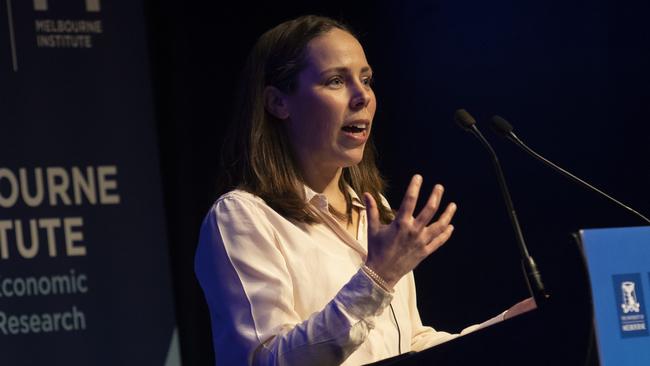Minimum pay jumps more than inflation and puts jobs at risk, prices up
Award wages will rise beyond inflation, intensifying pressure on businesses and increasing the risk that staff will lose hours – if not their jobs.
NSW
Don't miss out on the headlines from NSW. Followed categories will be added to My News.
Award wages will rise beyond inflation, intensifying pressure on businesses and increasing the risk that staff will lose hours – if not their jobs.
The Fair Work Commission (FWC) on Monday announced that from next month the earnings for 2.6 million employees will grow by 3.75 per cent, or $33.10 to $915.90 based on a 38-hour week.
Bosses will have to find an extra $5 billion a year to cover the hike, meaning higher prices are on the way.
Unions had been pushing for a 5 per cent wage jump while employers had lobbied for a rise of 2 to 3 per cent.
The lift for 2024-25 will be less than this financial year’s 5.75 per cent rise and the 4.6 per cent added in 2022-23, which were the two largest pay increases since 2010.
“But for the first time in three years, it exceeded inflation,” which is running at 3.6 per cent, said ANZ Bank senior economist Catherine Birch.
The increase will hit restaurants, cafes and retailers hardest, because wages can be nearly half of their total expenses, said Council of Small Business Organisations of Australia (COSBOA) CEO Luke Achterstraat.
These operators were already reeling from surging energy and insurance bills, as well as skyrocketing borrowing costs, Mr Achterstraat said.
Australian Restaurant & Cafe Association CEO Wes Lambert said the FWC decision was “not only hopelessly out of touch but potentially damaging.”

COSBOA’s Mr Achterstraat said the potential consequences included reducing employees’ hours or even having to let some go.
“A job loss is a 100 per cent pay cut,” he said.
Some operators were unlikely to survive, Mr Achterstraat said, before noting that other costs such as superannuation were on the rise, as was red tape.
“This wage increase might be the straw that breaks the camel’s back for many small businesses,” he said.
Owner of Zucchero Caffe Bar in Artarmon Valerio Domenici said he was “absolutely blind sided” by the decision to increase wages.
“It’s a huge slap in the face, I thought wow are they really going there again?” Mr Domenici told The Daily Telegraph.
Already he has to revise his menu to make cost cuts, add automatic surcharges to his eftpos machine and stay closed on public holidays. Now he will be looking at roster changes to stay afloat.
Entrepreneurial Small Business Women Australia CEO Amanda Rose also warned of the consequences for employers and their staff.
“Do we want to make sure those who earn the least in this country can survive in this current cost of living crisis? Absolutely,” Ms Rose said. “However we also want to make sure they have a job in the near future.”

Australian Industry Group economics director Jeffrey Wilson said the key to increasing wages above inflation was productivity growth.
“But productivity is the same as it was in 2019,” he said.
In lieu of productivity gains, to make ends meet, firms had to put up prices. However, some were unable to because of weak demand. That was a formula for losing money and going out of business, Mr Wilson said.
Federal Treasurer Jim Chalmers said the FWC decision was a “win” for workers.
“Strong and sustainable wage growth is part of the solution to cost of living pressures, not part of the problem,” he said.
Do you have a story for The Daily Telegraph? Message 0481 056 618 or email tips@dailytelegraph.com.au


